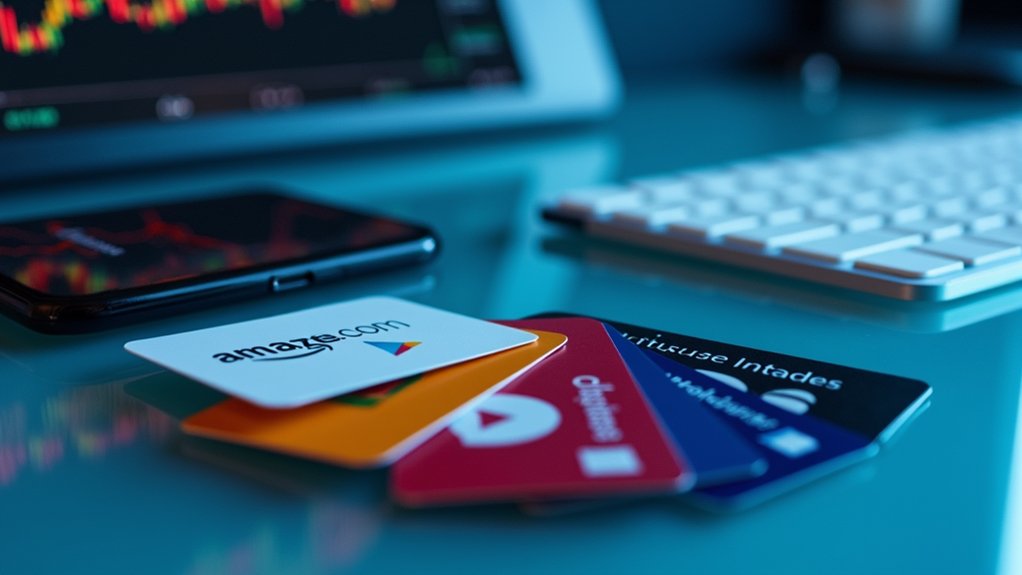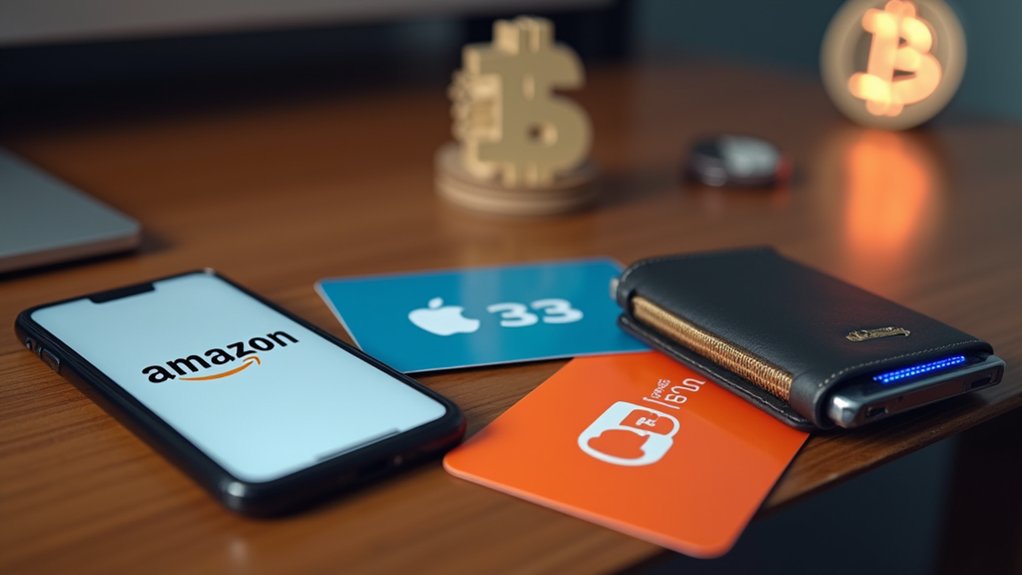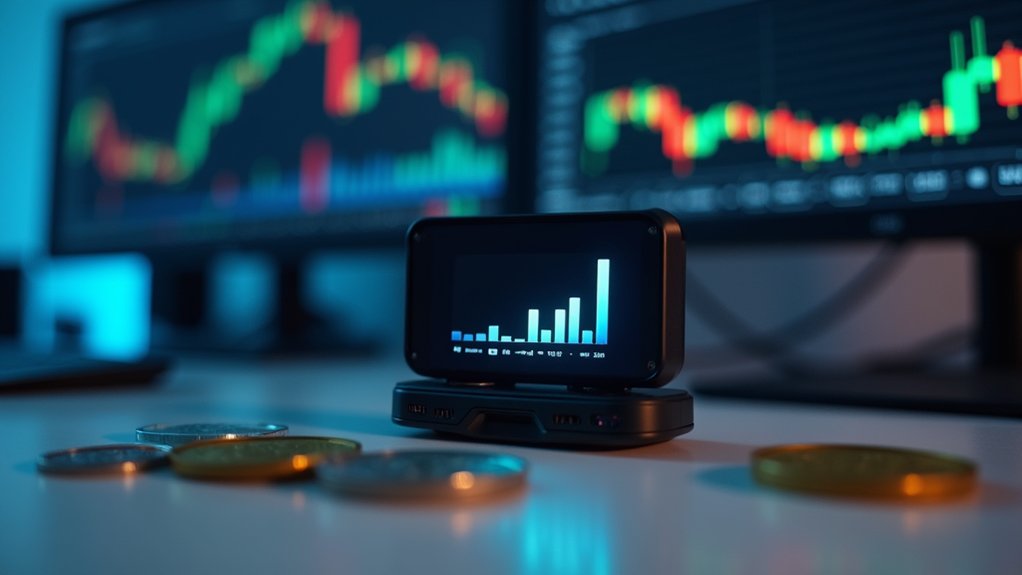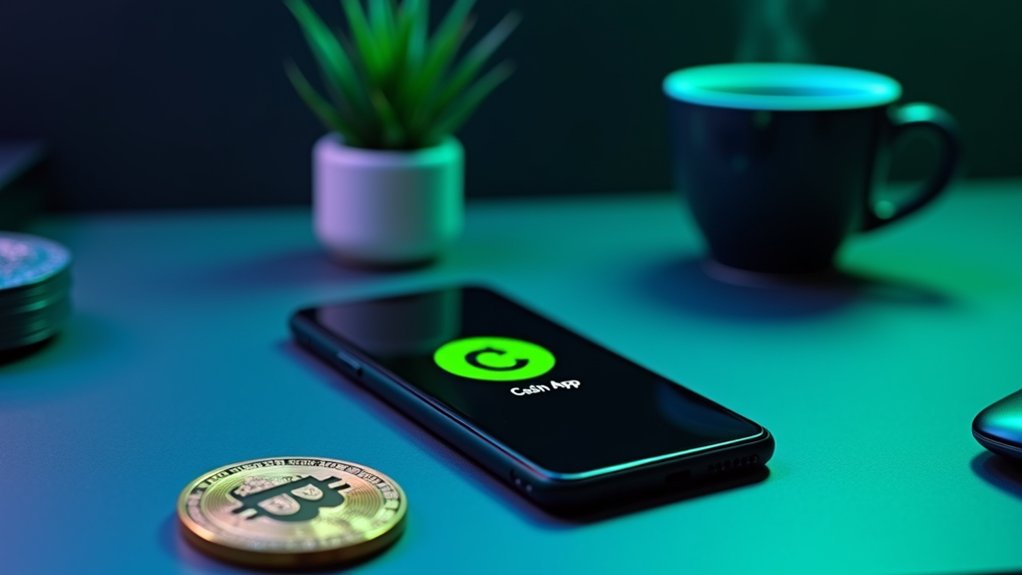Gift cards offer an accessible alternative payment method for purchasing cryptocurrencies, particularly for individuals in regions with restricted access to exchanges. Platforms like BitValve allow direct Bitcoin purchases using prepaid gift cards, typically charging around 1% in transaction fees. This method provides instant processing, anonymity from banking interactions, and eliminates the need for digital wallet setup, though users should prioritize regulated exchanges and implement two-factor authentication to mitigate security risks. Further exploration reveals additional considerations regarding volatility and regulatory consequences.

While traditional banking systems have long dominated the cryptocurrency acquisition landscape, gift cards have emerged like a versatile alternative payment method for individuals seeking to enter the digital asset marketplace. The process typically involves utilizing exchange platforms that accept gift cards as deposit methods, where users can transfer the gift card value to their exchange account and subsequently purchase their desired cryptocurrency. Platforms like BitValve enable direct Bitcoin purchases through various prepaid gift card types including Amazon and iTunes options.
The methodology offers distinct advantages regarding accessibility and convenience, particularly for individuals in regions with restricted cryptocurrency exchange access or those preferring to bypass conventional banking channels. Transaction processing occurs instantaneously following deposit confirmation, eliminating the need for digital wallet setup while still providing exposure to Bitcoin and other digital assets. This accommodates users seeking anonymity from direct banking interactions. These gift cards function specifically as a method to acquire Bitcoin, as Bitcoin gift cards cannot be used to purchase other cryptocurrencies directly.
Gift cards unlock crypto access where traditional banking fails, offering instant processing and privacy without wallet complexity.
Security considerations remain paramount when engaging in gift card-to-cryptocurrency transactions, with experts recommending regulated exchanges offering investor protections and escrow services for dispute resolution. Implementing two-factor authentication and securing gift card codes with the same diligence applied to cash handling constitute essential risk mitigation practices. Additionally, avoiding unregulated brokers considerably reduces fund theft probability. The process is designed to be quick and secure, allowing users to complete financial transactions without involving traditional banking intermediaries.
The cost structure associated with this acquisition method typically includes platform fees averaging around 1%, with some gift cards commanding higher exchange rates than others. Users should be aware that there are no deposit fees when using gift cards to fund accounts on most cryptocurrency exchanges. Bitcoin's growth potential often compensates for these transaction expenses, though users should remain vigilant regarding real-time pricing fluctuations before committing to exchanges.
Several platforms have established prominence in this space, including BitValve with its support for over 39 gift cards, Africa-focused Prestmit, and user-friendly Start Trading, serving global users through multi-currency exchange capabilities.
Potential challenges include vulnerability to P2P platform scams, gas fees during dispute resolution processes, cryptocurrency volatility, geographic restrictions on certain exchanges, and possible compromised anonymity through Know Your Customer verification requirements. Regulatory frameworks vary greatly across jurisdictions and potentially classify gift card transactions as taxable events.
Frequently Asked Questions
Are There Transaction Limits When Buying Crypto With Gift Cards?
Transaction limits apply to crypto purchases with gift cards, varying based on account verification status.
Basic accounts typically face restrictions of $2,000 per card, $5,000 daily, and $10,000 monthly, while verified accounts enjoy expanded thresholds of up to $10,000 daily and $50,000 monthly.
Platforms implement these constraints in the context of anti-money laundering policies, with circumvention attempts potentially resulting in account suspension or regulatory reporting.
Which Cryptocurrencies Can I Purchase Using Gift Cards?
When purchasing cryptocurrencies with gift cards, investors can typically access major cryptocurrencies including Bitcoin, Ethereum, Bitcoin Cash, Litecoin, and Dogecoin through platforms like BitPay and CoinGate.
Stablecoins like USDC and USDT, along with altcoins including XRP, Stellar Lumens, and Ethereum Classic, are also available through services like Runa.
Additionally, ERC-20 tokens—including LINK, UNI, and DAI—are accessible via Coinbase partnerships, while Binance-supported cryptocurrencies offer further options depending on regional regulations.
How Long Does the Gift Card to Crypto Conversion Take?
The gift card to cryptocurrency conversion process typically takes between a few minutes to 10 minutes, contingent upon platform efficiency and verification protocols.
Factors influencing duration include the exchange's processing infrastructure, verification complexity of card details, and the selected cryptocurrency's blockchain speed.
Users can greatly reduce conversion times by pre-uploading required documentation and ensuring familiarity with crypto wallet operations, while platforms offering 24/7 service enable strategic timing of transactions for ideal efficiency.
Can I Use Partially Spent Gift Cards for Crypto Purchases?
Yes, partially spent gift cards are widely accepted for cryptocurrency purchases across multiple platforms.
Services including GC Buying, Crypto Voucher, Redeem, Paxful, Bitrefill, and Gyft specifically accommodate users with remaining balances, converting these fractional amounts into Bitcoin, Ethereum, and other digital currencies.
This functionality allows consumers to extract value from otherwise dormant funds, preventing potential losses due to expiration or inactivity fees while providing an entry point into cryptocurrency markets without additional capital investment.
Do Gift Card Exchange Rates Vary Between Different Crypto Platforms?
Gift card exchange rates vary considerably between crypto platforms, influenced by several critical factors, including platform reputation, security infrastructure, and operational costs.
High-trust platforms like GCBuying and Cardtonic typically offer more competitive rates due to established market presence and verified transaction systems.
Additionally, payout method selection substantially impacts rates, with cryptocurrency settlements generally yielding 3-5% higher returns than fiat conversions, primarily due to reduced intermediary fees and simplified cross-border transfer mechanics.









